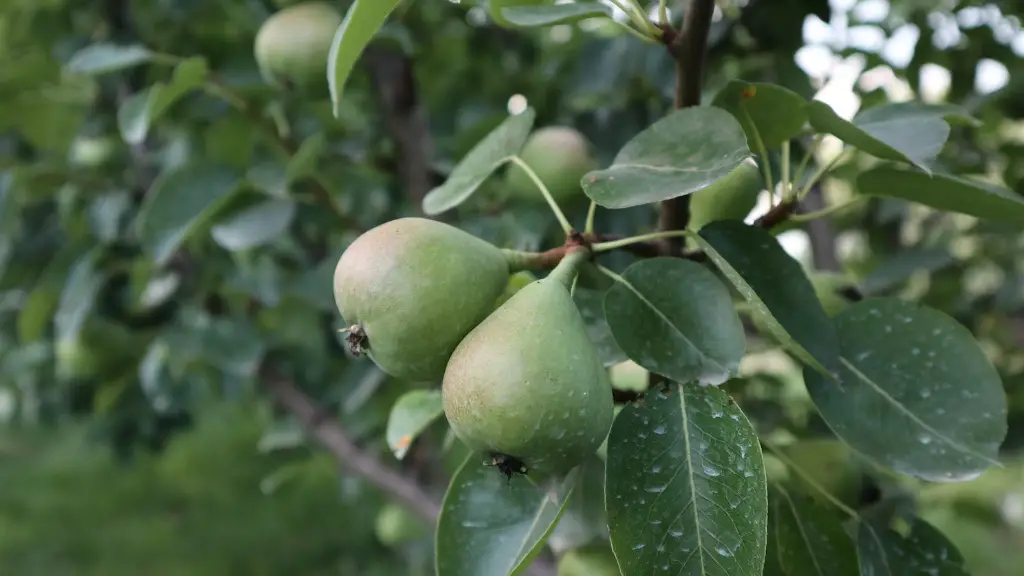There are many reasons to study ecology, including understanding how populations of plants and animals interact with each other and their environment, how ecosystems function, and how humans can impact both. Ecology is a growing field, with many opportunities for research and conservation. A career in ecology can be both personally and professionally rewarding, making a difference in our world.
A career in ecology can involve studying the environment and how it is affected by human activity. This can include researching how pollution affects the ecosystem, how climate change is affecting the environment, and how human development is impacting the natural world. Ecologists may also work to protect and preserve natural habitats.
What careers are for ecologist?
Field ecologist work with plants and animals in their natural environment. They may study the impact of humans on the environment, or work to restore damaged ecosystems.
Restoration ecologist work to restore damaged or degraded ecosystems. This may involve reintroducing native species, removing invasive species, or managing resources to improve the health of the ecosystem.
Park naturalist work to educate the public about the natural world and to protect natural resources. They may also develop and manage recreation programs in parks and other natural areas.
Marine biologist study the plants and animals that live in the ocean. They may study the impact of humans on the marine environment, or work to conserve and protect marine species and habitats.
Environmental consultant help businesses and organizations comply with environmental regulations. They may also help develop environmental policy, or conduct environmental impact assessments.
Environmental protection specialist work to protect the environment from pollution and other threats. They may investigate environmental crimes, or work to develop and implement environmental protection programs.
Natural resource manager work to conserve and sustainably manage natural resources. This may involve developing conservation plans, managing wildlife populations, or working to prevent and mitigate the impact of natural disasters.
Ecology is the study of the relationships between living organisms, including humans, and their physical environment; it seeks to understand the vital connections between plants and animals and the world around them. By better understanding these connections, we can learn how to protect and conserve our natural resources.
What are the four types of career paths in ecology
There are several options if you’re looking to pursue a career in ecology You may find work as a park naturalist, environmental consultant, restoration ecologist or natural resource manager.
As an ecologist, you will focus on collecting data on living and nonliving aspects of the environment. Your job duties will include identifying species in the field, conducting species or vegetation surveys, and conducting habitat assessments and/or monitoring. You will use this data to help understand how ecosystems function and how they are affected by human activity.
How do I start a career in ecology?
If you want to get a career in ecology, it’s important to talk to people in different jobs and sectors and network. Showing passion and knowledge for your subject is also key. Getting some practical experience is also important, but remember that quality beats quantity. Finally, attending talks and even giving one yourself can also help you get ahead in this field.
The median salary for ecologists in the United States is $73,169. The salary range for this profession is quite large, from $15,186 to $405,578. The top 86% of ecologists make $405,578 or more. This profession is a great option for those who are passionate about the environment and want to make a difference.
Is ecology a field of biology?
Ecology is the study of the relationships between organisms and their environment. It addresses the full scale of life, from tiny bacteria to processes that span the entire planet. Ecologists study many diverse and complex relations among species, such as predation and pollination.
Environmentalism is a political and social movement that seeks to protect the environment and natural resources. It is not synonymous with ecology, but the two fields are closely related. Many environmentalists are also concerned with issues such as climate change, overpopulation, and pollution.
No matter what your major is, if you’re interested in ecology there are plenty of options for you! You can study ecology as part of another major, like biology, or you can choose to study it as a standalone major. There are also many different majors that have to do with ecology. So no matter what your interests are, you can find a way to study ecology that’s right for you!
Is ecologist a good career choice
Ecologists study the environment and how different species interact with it. They may work in fields such as conservation, pollution control, or land management. With the current state of the environment, the demand for ecologists is growing. There are many career opportunities available for an ecologist in fields related to the environment. If you’re interested in a career that helps protect the environment, then becoming an ecologist is a smart choice.
Ecology is the study of how organisms interact with their environment. There are many different types of ecology, each focusing on a different level of organization.
Molecular ecology studies the interactions between genes and their environment. Organismal ecology studies how individuals of a species interact with their environment. Population ecology studies how groups of individuals interact with their environment. Community ecology studies how populations of different species interact with each other and with their environment. Global ecology studies the interactions between the biosphere and the lithosphere, hydrosphere, and atmosphere. Landscape ecology studies how ecosystems are organized at a landscape scale. Ecosystem ecology studies how energy and matter flow through ecosystems.
Is there a high demand for ecologists?
The expected growth in demand for industrial ecologists is great news for those looking for a career in this field. The expected increase of 13,390 new jobs is a 176 percent increase from the current number of jobs, which is a significant amount. This expected growth is due to the increasing importance of sustainability and the need for industries to be more eco-friendly. Industrial ecologists help industries to find ways to be more sustainable and reduce their impact on the environment. This is a growing field with a lot of potential for those who are interested in helping industries to be more sustainable.
If you’re passionate about the environment and want to make a difference, working as an ecologist may be the perfect career for you. Ecologists investigate ecological issues, interact with affected people and communities, synthesize and summarize their findings, and help design effective, sustainable solutions. In this way, ecologists contribute to the wellbeing of their fellow citizens and of the earth.
An ecology degree may take you down myriad paths. You could work for a government agency, a non-profit organization, or a consulting firm. You could conduct field research, work in a laboratory, or develop environmental policy. No matter what path you choose, you’ll be making a difference in the world.
What do ecologists study in college
Ecologists focus on the relationship of organisms within their environment. Ecology is the study of how organisms interact with their environment, and how these interactions affect the distribution and abundance of organisms.
The DOI’s ecologists conduct work involving the study of the relationships of organisms with each other, with their physical and chemical environments, and with society. They apply their expertise to inform studies of ecosystems or to evaluate the effects of land management actions.
Where do ecologists get paid the most?
If you’re interested in a career in ecology, you may want to consider relocating to one of the states listed above. These states offer the highest average salaries for ecologists, according to recent data. So if you’re looking to make the most money in this field, these are the places to be.
From what I can tell, there are very few steady ecology jobs outside of government work. Most positions are lab managers or consultants, both of which usually have short-term contracts. It can be difficult to get into full-time consulting, so that may not be a viable option for many people.
Is ecology a growing career
The job outlook for environmental scientists and specialists is projected to grow 5 percent from 2021 to 2031, about as fast as the average for all occupations. On average, about 7,800 openings for environmental scientists and specialists are projected each year over the decade.
Most careers in ecology require a bachelor’s degree in environmental science or a related field. This typically takes four years after high school. Some positions may require a master’s degree as well, particularly leadership and research positions.
Environmental science is a interdisciplinary field that covers the study of the environment and the problems that affect it. The field of environmental science can be divided into several sub-fields, including atmospheric science, ecology, oceanography, and Earth science.
A bachelor’s degree in environmental science will provide you with the skills and knowledge you need to pursue a career in ecology. The coursework will cover topics such as environmental biology, chemistry, and physics. You will also learn about environmental policy, economics, and law.
A master’s degree in environmental science will allow you to specialize in a particular area of ecology, such as ecosystem management or conservation biology. You will also have the opportunity to conduct research and gain hands-on experience working in the field.
Conclusion
There is no one “correct” answer to this question, as it depends on the specific career field and ecology studies that you are interested in. However, some possible career fields that you could study ecology for include environmental science, conservation, and sustainability.
A career in ecological field studies could be very rewarding. It would allow you to work closely with nature, and help to protect and preserve our planet and its many resources. The job outlook for this field is very good, as there is a growing need for people with this expertise. With the right education and training, you could have a very successful career in ecological field studies.





